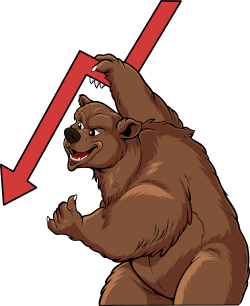CSLCarlisle Companies Inc.
Slide 1 of 3
Company Overview
Name
Carlisle Companies Inc.
52W High
$431.97
52W Low
$292.64
Market Cap
$16.1B
Dividend Yield
1.092%
Price/earnings
17.27
P/E
17.27
Tags
Dividends
No dividend
Sentiment
Score
Bullish
79
Low
Neutral
High
0
50
100
Trade Volume
Score
Neutral
50
Low
Neutral
High
0
50
100
Slide 2 of 3
Income Statement
Total Revenue
$5B
Operating Revenue
$5B
Total Gross Profit
$1.8B
Total Operating Income
$1B
Net Income
$740.7M
EV to EBITDA
$14.92
EV to Revenue
$3.56
Price to Book value
$8.97
Price to Earnings
$20.70
Additional Data
Selling, General & Admin Expense
$745.4M
Research & Development Expense
$47.1M
Other Operating Expenses / (Income)
$-2.4M
Total Operating Expenses
$-790.1M
Interest Expense
$-78.5M
Interest & Investment Income
$25.9M
Slide 3 of 3
Earnings History
Estimated EPS
Reported EPS
N/A Slide 1 of 5
Company Overview
Name
Carlisle Companies Inc.
52W High
$431.97
52W Low
$292.64
Market Cap
$16.1B
Dividend Yield
1.092%
Price/earnings
17.27
P/E
17.27
Tags
Dividends
No dividend
Slide 2 of 5
Sentiment
Score
Bullish
79
Low
Neutral
High
0
50
100
Trade Volume
Score
Neutral
50
Low
Neutral
High
0
50
100
Slide 3 of 5
Income Statement
Total Revenue
$5B
Operating Revenue
$5B
Total Gross Profit
$1.8B
Total Operating Income
$1B
Net Income
$740.7M
EV to EBITDA
$14.92
EV to Revenue
$3.56
Price to Book value
$8.97
Price to Earnings
$20.70
Slide 4 of 5
Additional Data
Selling, General & Admin Expense
$745.4M
Research & Development Expense
$47.1M
Other Operating Expenses / (Income)
$-2.4M
Total Operating Expenses
$-790.1M
Interest Expense
$-78.5M
Interest & Investment Income
$25.9M
Slide 5 of 5
Earnings History
Estimated EPS
Reported EPS
N/AUpcoming Earnings
We were not able to find an announced earnings date for this symbol yet. Check back again later
Company Info
CEO
David C. Koch
Location
Arizona, USA
Exchange
NYSE
Website
https://carlisle.com
Summary
Carlisle Companies Incorporated operates as a diversified manufacturer of engineered products.
Company Info
CEO
David C. Koch
Location
Arizona, USA
Exchange
NYSE
Website
https://carlisle.com
Summary
Carlisle Companies Incorporated operates as a diversified manufacturer of engineered products.
Community Research
Research from investors like you
Be the first to share your analysis on CSL
Help fellow investors make informed decisions by sharing your research on fundamentals, catalysts, and outlook.
Topics: Company overview • Products • Competitors • Strengths & Risks
Symbol's posts
No more topics to show












